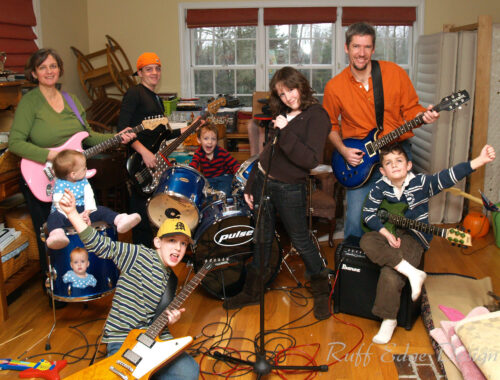
Do Any of Us Understand Time?
It has been two weeks since I sent my email to the friend I wrote about in my last post. Since then, I have also sent her four books that I have no idea if she’ll even open, but I tried. One of those books is You Can Heal Your Life by Louise Hay. I am working my way through my own copy for the second time, and this morning, I got to this:
What we often refuse to realize is that holding onto the past—no matter what it was or how awful it was—is ONLY HURTING US. “They” don’t really care. Usually, “they” are not even aware. We are only hurting ourselves by refusing to live in this moment to the fullest.
The past is over and done and cannot be changed. This is the only moment we can experience. Even when we lament about the past, we are experiencing the memory of it in this moment, and losing the real experience of this moment in the process.
Okay. This is an interesting passage. I say YES to the letting go of the past, but Hay does not do a good enough job of differentiating between ignoring the unconscious and facing it. At another point in the book, she talks about how she had to finally feel and express the anger and resentment she held for her stepfather, who sexually abused her when she was a child, in order to cure herself of vaginal cancer. And yes, the type of cancer she had was absolutely related to the sexual abuse. That’s how this stuff works. Further, if you don’t believe that cancer can be cured by dealing with emotions, I highly recommend Mind, Fantasy, and Healing by Alice Hopper Epstein, who was alive and cancer-free four years after she was told she would die of cancer in about three months. The book, published in 1989, is out of print, but copies are available here.
You see, it’s easy to talk about letting go of the past and living in the present, but how many of us are successful at doing so? How many of can say “I forgive” and then truly forget? What’s more, it’s not really a matter of letting go of the past. It’s a matter of making the past let go of us.
Just over a year ago, my husband and I were, after thirty years of marriage, finally reaching a point at which we could communicate in such a way that he could begin to understand me. Of course, we would not have gotten there if I had not worked long and diligently to understand myself. I remember a significant day when we walked into the snowy woods across the road. I followed him as he struggled over the rough terrain after an acupuncture appointment for the sciatica that had him nearly immobilized for weeks and weeks. I was angry enough at him for the hurtful things he had recently said to me and for his refusal to take ownership of what he had done that I smiled at the challenges he was facing. After about twenty minutes, he finally stopped, turned to me, and said something like, “Cheryl, I am sorry for all the times I have hurt you in the past.” Now, you might think that I’d have been relieved or grateful to hear such a statement from him, but instead, I got even angrier, and I told him why. He still didn’t get it. So I tried again, and I knew, right then and there, that I was prepared to stay among the trees, freezing in place for hours, if that’s what it would take to FINALLY get through to him. Thankfully, I made myself clear soon enough, and he was able to see that the past hurts were not really the issue. The issue was that he continued to treat me in the way that he had always treated me: with little or no acknowledgement of the ways in which his words and actions made me feel.
Could he and I have gotten to that level of communication if I had not delved into the past and explored those years’ worth of conflicting thoughts, all that confusion, the thousands of emotions that never had anyplace to go? No. Doing THE WORK of facing my unconscious was essential to reaching the point at which I could clearly see and understand what he was doing when he refused to HEAR what I was saying, and he had—throughout the entirety of our marriage—refused to HEAR what I was saying if it in some way it made him feel threatened or unable to control a situation.
Now that I can feel my emotions when they come up (as can Dennis, with his own emotions), I can deal with them in whatever way is best, right then and there. Sometimes that means a painful conversation, sometimes it means a quick reminder, maybe it means acknowledging the emotion and moving on, or it might call for an apology on my part or someone else’s. The important part is taking care of the problem when it arises, so it can’t come back to haunt me and others in the future. I’d say that’s a pretty good way to live in the moment. On top of that, doing all of this Work has made me better at tuning in to the feelings of those around me and reaching out to clarify or apologize when I realize that something I said or did may have hurt them. Yet it’s completely different from the way I used to twist myself into knots after nearly every social interaction I ever had, because I was so worried I had made a mistake and someone might not like me.
As far as the friendship I referred to at the beginning of this post: it looks like there is little more that I can or will do, other than continue to grieve for what has been lost until it no longer hurts, and then I will do as Louise Hay (and maybe Jesus?) suggests: I will declare that I release my friend and ask God to shower her with abundant blessings.



